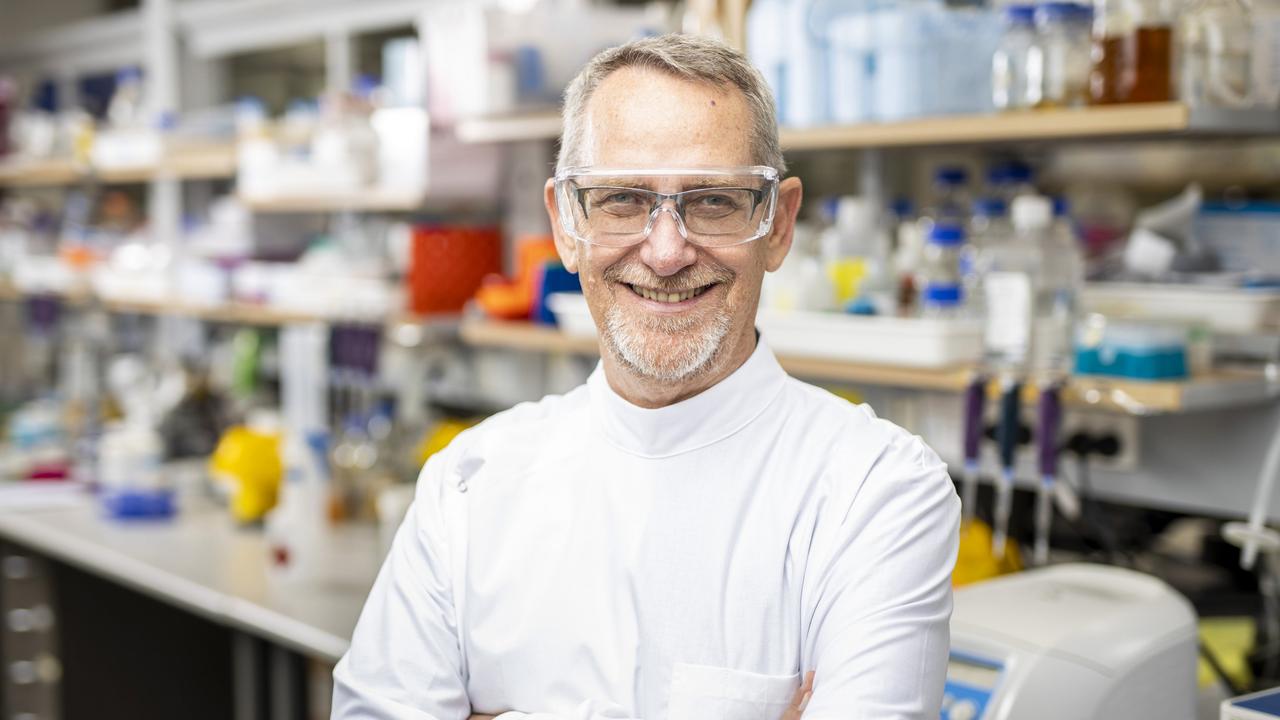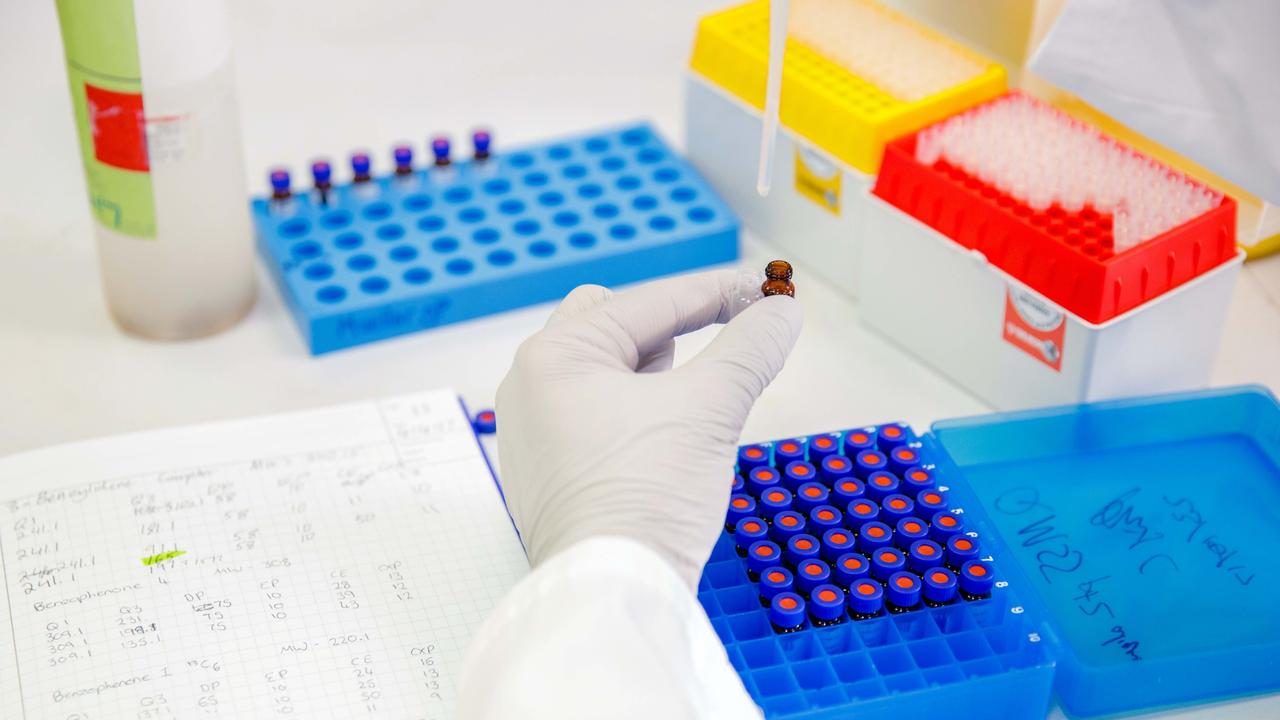University of Queensland COVID-19 vaccine: Australia’s secret weapon against coronavirus
As the world struggles with vaccine issues, a new study has revealed we may have our own secret weapon against COVID already in Australia.

As the world struggles with COVID vaccine supply issues, a new study has revealed the University of Queensland’s (UQ) abandoned vaccine was effective after just one jab and could be stored at fridge temperature.
By comparison, the Pfizer and AstraZeneca vaccines require two doses each and pose a massive logistic challenge which is further complicated by Pfizer needing to be stored at -70C.
Now UQ’s vaccine team is working behind the scenes on their ditched vaccine, and new research they’ve put out today suggest we could have a secret weapon against the virus right here in Australia.
The team’s leader, Professor Paul Young, told The Courier-Mail his scientists were continuing to re-engineer and progress their unique clamp technology for future use, but would need major funding if it was to be returned to human trials.
“We are working day to day and moving the technology forward but we are trying to stay under the radar as the focus needs to be on the AstraZeneca vaccine that is being rolled out as it is our best line of offence,” the professor said.
RELATED: How many vaccine doses delivered in each state

RELATED: PM ignoring ‘unmitigated disaster’ of vaccine rollout
Clinical trials abandoned after false positive results
The vaccine was dealt a crushing blow in December after several trial participants returned false positive HIV test results.
That meant that the Morrison Government’s billion-dollar deal to buy more than 50 million doses was terminated, and forced UQ to abandon its clinical trials.
The HIV detections picked up were in fact false and the health of the participants were not put at risk.
The vaccine uses what is called a protein and adjuvant platform, which contains the COVID-19 spike protein and a “molecular clamp”.
A small part of this comes from the human immunodeficiency virus, known as HIV, that is not able to infect people or replicate.
A source involved in the trial said although all participants had been told there was a remote possibility HIV markers could be found in tests during the trial, medical researchers had not expected it to occur.
Researchers previously said the vaccine was ahead of schedule and would be available to Australians by the end of 2021.
RELATED: Warning as seven die after virus vaccine

RELATED: Changes to Aussie vaccine rates coming
Department of Health Secretary and former chief medical officer Brendan Murphy told reporters shortly after the crushing blow in December that the risks of the University of Queensland’s vaccine became “a bigger problem than anyone had anticipated”.
“The possibility of false positives was raised by the University of Queensland very early on and was seen as a very, very unlikely possibility because the fragment of the HIV virus molecule was small,” Professor Murphy said.
“It was unfortunately an unexpectedly high rate when the data came in.
“The risks were appropriately taken and unfortunately it just became a bigger problem than anyone had anticipated.”
However, the release of new data shows the technology is highly effective after just one jab and is stable at fridge temperature – something the Pfizer vaccine doesn’t achieve.




